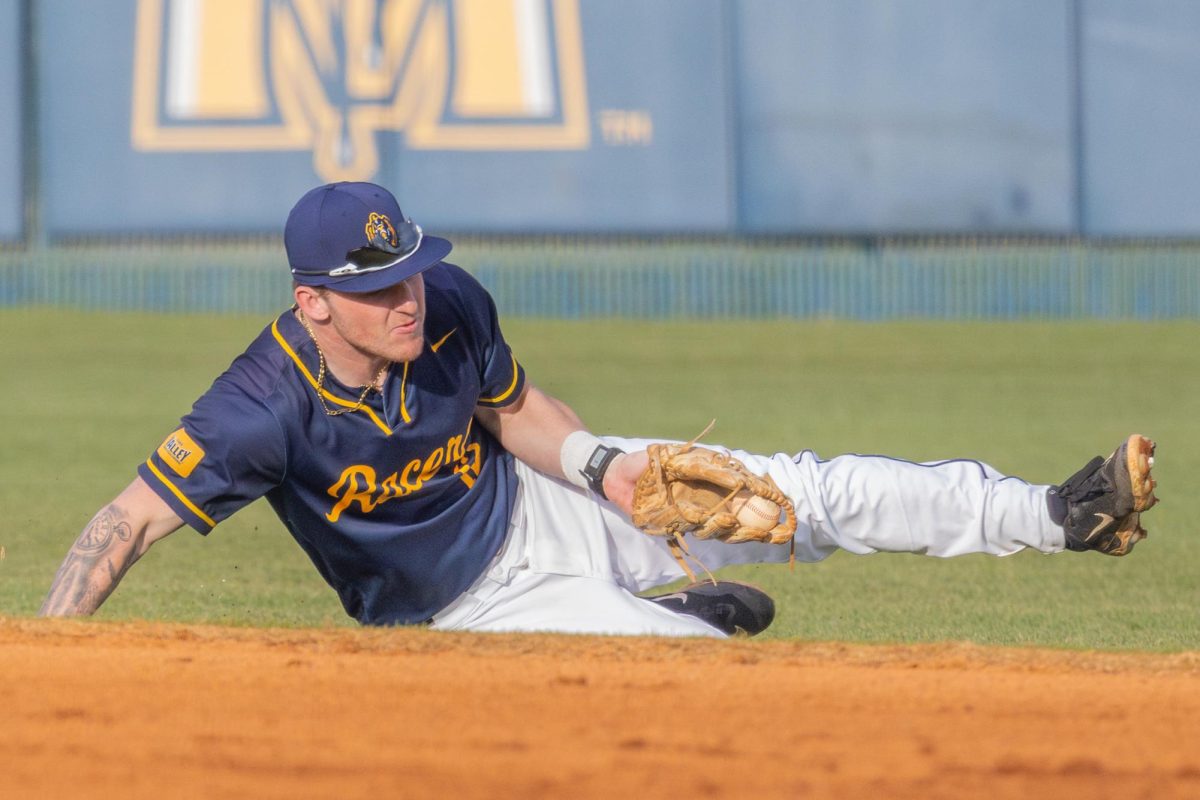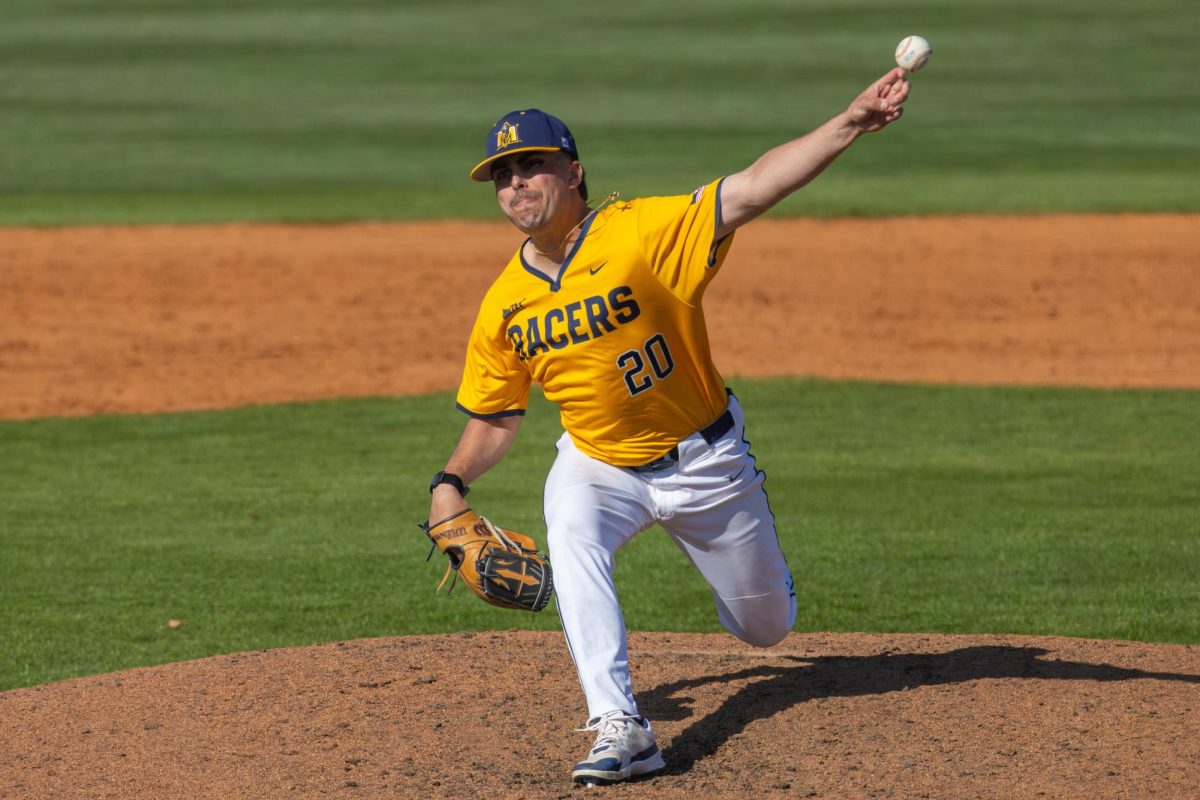Story by Alicia Steele, Staff writer
 For the last month, the University of Texas has been entangled in a debate over allowing anyone with a concealed carry license to carry a concealed gun on campus, an argument that has prompted professors and students to send letters and sign petitions to protest this new law, set to take effect in August.
For the last month, the University of Texas has been entangled in a debate over allowing anyone with a concealed carry license to carry a concealed gun on campus, an argument that has prompted professors and students to send letters and sign petitions to protest this new law, set to take effect in August.
Murray State prohibits all weapons on university property, including classrooms, office buildings and parking lots. However, the Kentucky House has a bill pending this session that, if passed, could change that.
Kentucky House Bill 211, cosponsored by Republican state Reps. Kenny Imes, R-Murray, and Richard Heath, R-Mayfield, would allow anyone who holds a valid concealed deadly weapons license or temporary permit to carry concealed weapons on public university and college campuses.
This bill was introduced to the Kentucky House Jan. 11 and sent to the House Judiciary Committee Jan. 12, where it has sat since. The General Assembly has 10 working days left to pass any bill.
Adrienne King, vice president of Marketing and Outreach, said if similar legislation to that of Texas were passed in the state of Kentucky, Murray State would adhere to the law.
“With that said, the safety of our campus community will always be our top priority,” King said.
King said that according to university records, 6,424 currently enrolled students are over the age of 21, but she could not speak to the number of individuals that would meet specific requirements necessary to get a concealed carry permit in Kentucky.
Under the Kentucky law, an individual applying for a concealed carry license must:
- be a U.S. citizen and a resident of the commonwealth of Kentucky,
- be 21 years of age or older,
- not have been committed to a state or federal facility for drug or alcohol abuse within three years period of the application date,
- not owe more than a year of child support and
- complete a firearms training and safety course.
King said, to her knowledge, university leaders have not discussed allowing concealed carry of firearms on Murray State property.
Last year, Texas became the eighth state to have provisions allowing people to conceal and carry guns on college campuses, according to the National Conference of State Legislators, or NCSL.
“I do not believe handguns belong on a university campus,” wrote University of Texas President Gregory L. Fenves in a letter to Texas students, faculty and staff. “So, this has been my greatest challenge of my presidency to date.”
Fenves said faculty, staff, students and parents have signed petitions, sent emails and letters and organized to ban guns from campus and classrooms, and he understands the concerns raised.
“However, as a president, I have an obligation to uphold the law,” Fenves said.
However, Daniel Hepworth, Murray State assistant professor and director of the criminal justice program, said he is unaware of any study that shows any significant rate of criminal behavior of concealed carry permit holders, or general irresponsibility of the permit holders with firearms.
“So, while there is always a need for alertness when firearms are present, yes, I would say that I would be comfortable knowing that a student in my classroom or a faculty or staff member in the office might be responsibly armed,” Hepworth said.
Hepworth said when it comes to considering the effectiveness of gun-free zones, he turns to research conducted on public mass shootings, which shows that a majority of them happen within gun-free zones. According to these statistics, to be considered a mass shooting, the event must involve two deaths.
Hepworth said a mass shooter’s intention is to kill as many people as possible, and the shooter is almost always stopped by another armed individual.
“It is worth pointing out here that multiple studies on defensive gun use by private citizens estimate that in about 75 percent of defensive gun cases, the firearm is never fired,” Hepworth said. “Merely presenting the weapon to the offender causes him to either flee or submit until police are able to arrive and secure the location.”
Hepworth said mass shootings generally only last a few minutes, but in the time it takes police to respond, shooters are typically able to cause a lot of damage.
“It is my opinion that any reasonable step taken to minimize the harm inflicted by such an event (or to prevent it altogether, if this is even possible), would absolutely be in the public’s best interest,” he said.
Paige Effinger, occupational safety and health major from Evansville, Indiana, said from the mindset of a safety professional, she believes that allowing guns on campus would disrupt the level of safety.
“Guns during a hazardous event would be the last thing that we would want,” Effinger said.
Effinger said that if there were to be an accident – like a fire – and a gun were to go off, that would only add extra safety concerns.





























































































